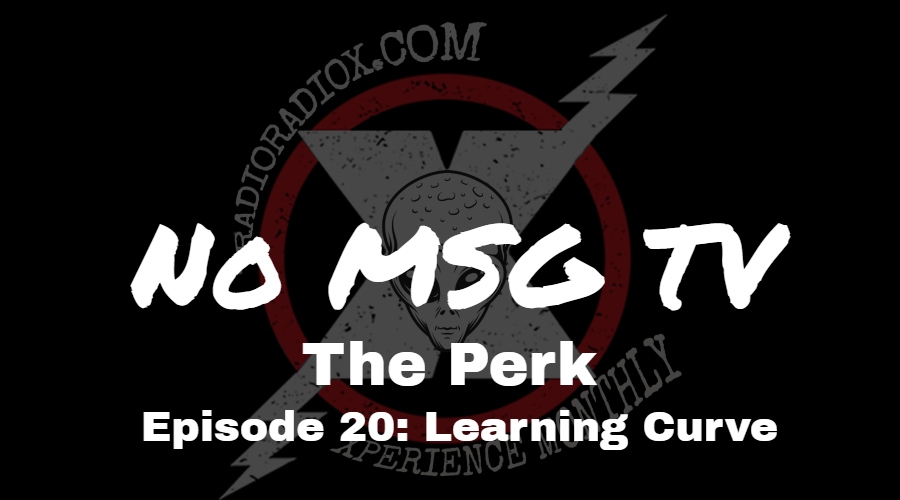Left of the Dial: Music Critics, an Article by Mike Stampalia – Xperience Monthly
Written by Staff on September 12, 2023
Left of the Dial.
“What is this shit?”
That’s the opening line of a very famous Greil Marcus review of Bob Dylan’s 1970 double album, Self Portrait. It still cracks me up every time I read it.
What’s sometimes forgotten is that the review as a whole is pretty exhaustive and quite nuanced. It has many other gems buried in there (“The Boxer” gets critiqued as “Jesus is it awful”), but it is not solely negative. What it is, however, is an excellent piece of writing.
I like music critics. The good ones anyway. I love music, but there’s only so much I can see and hear myself. Good critics expand my reach and my knowledge – who’s up-and-coming, who’s coming apart at the seams, whom do I need to see the next time they’re in town, and who’s phoning it in. I follow my favorite critics religiously.
Good critics are exceedingly rare, but bad ones are legion, here as anywhere. What makes a bad critic? There are so many ways to suck:
- The “Boilerplate”: Same review, every time. “If you haven’t had a chance to see these guys yet, I suggest you do. They’re playing next in Burlington on Saturday…” Yawn.
- The “I’m Only Doing This to Get in Free”: 100 words or less of nothing. Just send a photographer, a blurb is worthless.
- The “I Like to Beat Up on Local Bands”: Why? Just, why?
- The “Every Show and Record is AWESOME”: If everything’s great, then nothing is.
- The “I’ll Describe It, But I Won’t Critique It”: Describes everything in painstaking detail, yet you still don’t know if they liked it.
- The “Just an Excuse to Name Drop”: Shoehorns in some reference to when they smoked weed with Foghat at the Skyway in ‘83, even though it has nothing to do with anything.
- The “I’m the Singer’s Girlfriend, but Let’s Pretend This is an Unbiased Review”
The list goes on and on.
But what makes a good critic?
A good critic is knowledgeable. They know a lot about their subject matter, and they do their homework. They understand that nothing – no artist, album, or show – exists in a vacuum, and they know how to connect it to the bigger picture. Music is art, and art is, fundamentally, life. They do not lose sight of that.
A good critic can write. They don’t have to be a stodgy, formally-trained English teacher (see Greil Marcus, above). But they know how to put words together in a compelling way. They think about what they’re going to write, and they spend some time doing it. They have a “voice.” I can identify my favorite critics’ writing even if it’s unsigned.
They love music, full stop. They respect the musicians that earn it (the great majority), they call out the musicians that don’t, and they treat their subjects seriously. This last point bears repeating. If you do not treat your subject matter seriously, then you don’t get to complain when nobody takes your review, or you as a critic, seriously.
A good critic should have situational awareness. Reviewing Guns ‘N Roses at SPAC is a different animal than reviewing Miko Marks at Caffe Lena, and neither approach is appropriate for reviewing, say, Under the Den at the Fuze Box. This point seems lost on a good number of critics, who approach their craft with a blunt, one-size-fits-all approach.
National acts that play to thousands of people are, by definition, newsworthy. Irrespective of the act, if a lot of people paid a lot of money to see them, someone should be asking whether it was actually any good. Because many times, the answer is no. The role of the critic here should be to strip away all the hype, all the nostalgia, all the pressure (because fans of these acts will be brutal to you) and tease out whether or not it was actually good. The band doesn’t need your review and won’t read it. The fans have already made up their mind – you aren’t swaying any of them, either. You are writing for posterity’s sake, and history will eventually decide if you got it right or wrong.
Mid-level acts are where critics really earn their keep. These are musicians playing to dozens or perhaps hundreds of people and tend to be either rising stars or established acts somewhat past their halcyon days. A review here is of interest to both the artist (it may get quoted and promoted) and the audience (readers are actually open to influence as to whether the act is worth seeing). A critic has to be ruthlessly fair here – if everything you write is a rave, you forfeit all influence as a writer. But if you get it right, this is where you can make your reputation.
Local bands. In my opinion, nobody should publish a negative review of a local band. A critic’s role on the local scene should be one of discovery. I see a lot of local bands – many are terrific, some are awful. So I write about the terrific ones. Obscurity is already a big enough challenge for local bands, they don’t need some blowhard going out of his way to tear them down. When a local band gets big enough to start touring, let the critics in the other towns weigh in. We should take care of our own.
As a critic, you won’t always be liked, and you certainly won’t always be agreed with. But if you’re respectful, you just might get respected.
Now, what is this shit?





 RadioRadioX
RadioRadioX